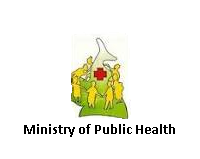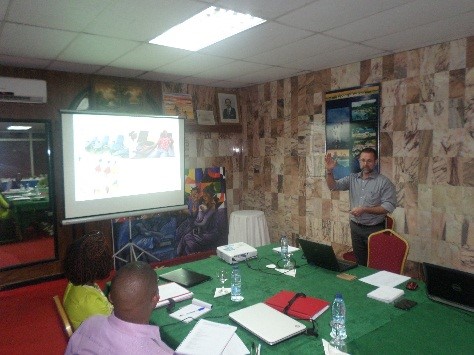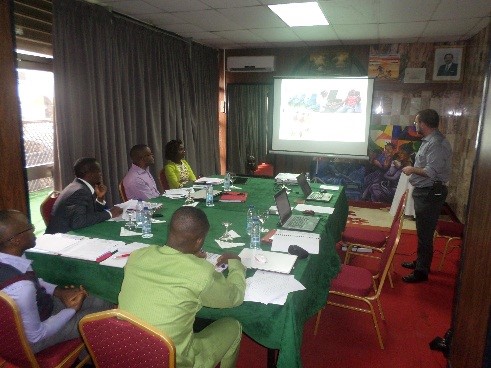Implementation of Quality Management Systems in Hospital Blood Banks in Cameroon: an AfSBT step-wise accreditation-based approachTRAINING OF MENTORS
For nearly three years the Safe Blood for Africa Foundation™ (SBFA), with the support of the US Centers for Disease Control and Prevention (CDC), has worked towards strengthening fourHospital Blood Banks to meet the guidelines of the World Health Organization (WHO) and the Standards of the Africa Society for Blood Transfusion (AfSBT).
After several training sessions for staff from hospitals across Cameroon, mentorship support is essential to ensure progress towards AfSBT accreditation and refinement of the knowledge, skills and competency acquired. This is to be done at the four designated hospitals via the use of the participants’ action plans for their work place they developed during earlier training. To achieve this each location will be assigned a fulltime mentor.
From the 2nd to the 3rd of July 2016, the team of five mentors underwent two days training in Doualaon the SBFA Programme for Establishing Mentoring. The content of the programme included key factors such as principles of the Blood Safety Value Chain (BSVC), basic introduction on principles of adult education and mentoring, communication and training, overview of blood safety in Cameroon, the AfSBT standards and the Step-wise Accreditation Programme. The programme was delivered by Dr Pete Zacharias (SBFA COO) and Dr Claude Tayou (SBFA Country Coordinator in Cameroon).
Five Key challenges have been identified by SBFA, CDC Cameroon and the Directors and Heads Hospital Blood Banks for the first year of mentorship:
The Mentors’ primary role is to guide the staff of each blood bank to improve in all these areas by instituting a Quality Management System using the AFSBT Standards as the framework. Monthly M&E reporting will be used to monitor progress.
Claude Tayou Tagny, Country Project Coordinator
|






